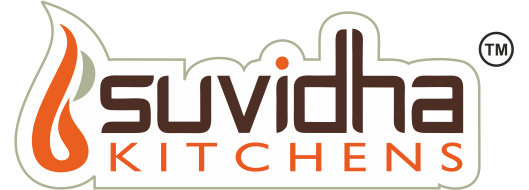FAQ’s
- Home
- FAQ’s
Sales QUESTIONS
1.What is a commercial kitchen?
A commercial kitchen is a professional cooking space specifically designed and equipped for food preparation on a large scale. It is used in restaurants, hotels, catering businesses, and other food-related enterprises.
2. What are the essential equipment and appliances in a commercial kitchen?
Essential equipment includes ovens, stovetops, grills, fryers, refrigerators, freezers, prep tables, sinks, and dishwashers, among others, depending on the type of cuisine and menu.
3. Do commercial kitchens require specific permits or licences?
Yes, operating a commercial kitchen typically requires permits and licences, including health department permits, food handler certifications, and possibly zoning approvals. Regulations vary by location.
4. How do I maintain food safety standards in a commercial kitchen?
Regular training, proper food storage, maintaining correct temperatures, sanitizing surfaces, and following food safety protocols are essential for ensuring food safety in a commercial kitchen.
5. What is the difference between a commercial kitchen and a residential kitchen?
Commercial kitchens are designed for high-volume food production and are subject to strict health and safety regulations. They feature specialized equipment, larger workspace, and higher ventilation capacity than residential kitchens.
6. Can I rent a commercial kitchen space?
Yes, many commercial kitchens offer rental options for entrepreneurs, caterers, and small businesses that don’t have their own kitchen facilities.
7. What are the best practices for kitchen hygiene and cleanliness?
Regular cleaning schedules, using food-safe cleaning products, sanitizing surfaces, and following health department guidelines are key practices to maintain kitchen hygiene.
8. How can I optimize workflow and efficiency in a commercial kitchen?
Efficient kitchen design, well-organized storage, and a trained kitchen staff are essential for optimizing workflow and productivity.
9. What are some energy-saving tips for commercial kitchens?
Energy-efficient appliances, proper maintenance, scheduling equipment use, and sealing gaps and leaks can help reduce energy consumption and costs.
10. Are there any safety measures specific to commercial kitchen fires?
Installing fire suppression systems, maintaining grease traps, and training staff on fire safety protocols are crucial to prevent and handle kitchen fires.
Remember that specific regulations and guidelines may vary by location and type of commercial kitchen, so it’s essential to consult with local authorities and industry experts for detailed information and compliance.
11. How do I choose the right size and capacity for my commercial refrigerator and freezer?
Consider your storage needs, available space, and peak usage. It’s essential to balance capacity with energy efficiency.
12. Are there energy-efficient options for commercial ovens and stoves?
Yes, many commercial ovens and stoves are available with energy-efficient features, such as better insulation and precise temperature controls.
13. What is the difference between convection and conventional ovens in a commercial kitchen?
Convection ovens use fans to circulate hot air, resulting in even cooking and faster cooking times compared to conventional ovens, which rely on radiant heat.
14. How do I maintain and clean commercial kitchen appliances like deep fryers and grills?
Regular cleaning and maintenance are crucial. Consult the manufacturer’s instructions and consider professional cleaning services for deep fryers.
15. Can I use induction cooktops in a commercial kitchen?
Yes, induction cooktops are increasingly popular in commercial kitchens due to their speed, precision, and energy efficiency.
16. What should I look for when selecting commercial kitchen sinks and dishwashers?
Look for durability, capacity, and efficiency. High-quality dishwashers should meet sanitation standards, while sinks should be easy to clean and maintain.
19. Can I purchase used commercial kitchen equipment, or should I buy new?
Both options are possible. Used equipment can be cost-effective but should be thoroughly inspected for condition and safety compliance.
18. Are there safety features to consider when purchasing commercial kitchen equipment?
Yes, safety features such as automatic shut-off, temperature alarms, and fire suppression systems should be considered for various appliances.
17. Do I need a commercial ventilation system, and what are the requirements?
Yes, commercial kitchens typically require powerful ventilation systems to remove heat, odors, and grease. Requirements vary by location and equipment.
20. How do I ensure my commercial kitchen equipment complies with local codes and regulations?
Work with a knowledgeable professional or consultant who is familiar with local codes and can guide you in selecting compliant equipment.
21. What is the average lifespan of commercial kitchen equipment?
The lifespan varies depending on usage and maintenance, but quality commercial equipment can last anywhere from 10 to 15 years or more.
23. How can I troubleshoot common issues with commercial kitchen equipment?
Consult the manufacturer’s manual for troubleshooting tips, and consider having a maintenance contract with a service provider for regular check-ups.
22. Are there financing options available for purchasing commercial kitchen equipment?
Yes, various financing options, including leasing and equipment loans, are available to help businesses acquire the necessary equipment.
